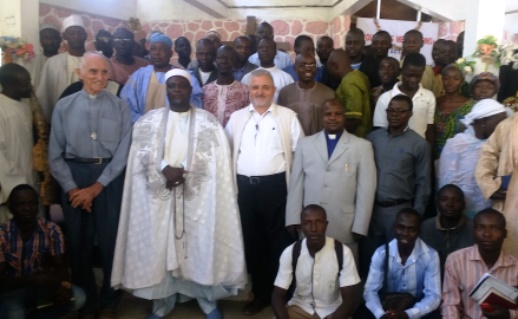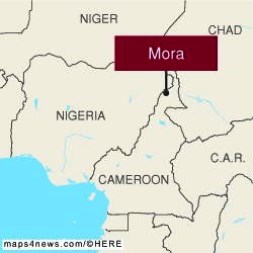
Christian and Muslim leaders in northern Cameroon have reiterated their call for tolerance and peace in the face of a surge of terror attacks by the Nigerian radical Islamic group Boko Haram.
On 21 Jan., several prominent religious leaders gathered in the town of Mora to discuss peaceful coexistence.
The conference, titled “Living in peace in the sight of God”, was co-chaired by the Sultan of Wandala, Boukar Alhaji Yerima Brahim; Rev. Gregory Cador, Episcopal Vicar of Mora; and Rev. Samuel Heteck, president of the Protestant Churches Council in northern Cameroon.
In their speeches, the religious leaders emphasised that both Islam and Christianity promote tolerance and peace.
“Without a doubt, this day marks the beginning of a long march together, hand in hand, Christians and Muslims looking in the same direction in order to eradicate violence and terrorism,” the Sultan of Wandala said. The conference, he said, “will not only strengthen the brotherhood between our two religious groups, but also helps to boost the momentum that we support as custodians of the divine law”.
nThe Sultan denounced widely circulating video footage on social media and jihadist outlets, glorifying violence in the name of Islam.

He urged Christian and Muslim leaders to persevere in their role as educators, by preaching love and brotherhood within families, communities and places of worship. He also called on all followers of different religious groups to increase “our common determination to counter the inhumane and barbaric ideology of Boko Haram”.
Jonas Gadjabougou, a pastor speaking on behalf of Protestant churches, said Christians in a situation of violence and deep crisis must strive to show mercy and compassion, like the Biblical example of the Good Samaritan.
“Blessed is a generous man because the memory of the righteous shall dwell forever,” Gadjabougou said.
Rev. Cador stressed the importance of “inclusive and universal brotherhood”, while inviting the participants to “break the spiral of violence and hatred”.
The interfaith meeting was not unlike a Christian-Muslim dialogue held in April 2014 about 50 kilometres to the south, in Maroua, Cameroon.
The talk of solidarity and brotherhood in Mora occurred against a backdrop of deteriorating security in the region. Despite the noticeable presence of military reinforcements, northern Cameroon has become a battlefield for Boko Haram, whose violent campaign to impose Islamic law on Nigeria has spread to neighbouring Niger and Chad. Deadly suicide attacks, mainly targeting markets, places of worship and other gatherings, are taking place on a weekly, or sometimes daily, basis.
“In Mora, groups of Christian and Muslim youth now patrol outside mosques on Fridays and churches on Sundays.”
Some 25 suicide attacks hit the region, and claimed 84 lives, just in the month of January 2016, according to an official toll.
According to a report for the 27 Jan.-2 Feb. period by the Switzerland-based Assessment Capacities Project, Boko Haram killed 86 and injured 62 in Borno State, Nigeria, when it set fire to the village of Dalori. Another 13 were killed and 30 injured in an attack on the Nigerian town of Chibok. And when Cameroon announced its troops were searching for Boko Haram, 40 people were found dead shortly thereafter.
Islamist insurgency
The wave of violence has dramatically hampered trade and weighed heavily on the economy of the region.
Islamist insurgency has significantly changed daily life. In Mora, which serves as the base for a Multinational Joint Task Force fighting Boko Haram, Sunday services were cancelled in Protestant and Catholic churches in October and November. Christmas and New Year vigils, likewise, were cancelled.
Though the places of worship have re-opened, the number of worshipers has decreased, a local church leader told World Watch Monitor.
Only men are permitted to attend services; the movements of women in Mora remain prohibited on Saturdays and Sundays, because most attacks have been committed by female suicide bombers.
However, the church leader said there is an awareness of the global response to the crisis and that this has helped to strengthen a spirit of solidarity between Christians and Muslims. Groups of Christian and Muslim youths patrol outside mosques on Fridays and churches on Sundays, he said.
He said their way of dealing with the situation has changed and that they are now praying for a change of heart among the militants, while sermons focus more on encouraging Christians to persevere amid difficult circumstances.